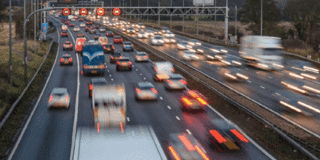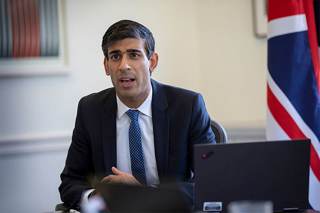Concerns are being raised over the potential impact of a proposed toll road on business drivers nationwide.
Edmund King, president of The AA, believes that Government plans to toll a stretch of the A14 between Huntingdon and Cambridge could ultimately result in more widespread use of tolling to fund new roads across Britain.
King also expressed his reservations about business users being effectively forced to use the new A14 toll road because of the lack of a viable alternative route.
Under the proposals, the existing route of the A14 will be closed when a bridge at Huntingdon is demolished and motorists are diverted on to the new toll road.
This will result in motorists either having to pay or alternatively use two longer routes – incorporating either the A428 or the A1123 – to rejoin the A14 at a point where it is not tolled.
Both business users and residents on these roads have expressed their reservations that they will become severely congested as a result.
King said: “For many fleet and other business users, the A14 is a vital route that links to the ports of the east coast and there is clearly a desperate need for improvement between Huntingdon and Cambridge.”
Tolling would raise 20% of costs
“While these improvements are to be welcomed, we do feel that the sting in the tail is the tolling of the road,” he added.
“Apart from the tolled section of the M6, where there’s a viable alternative for those who don’t want to use it, we do not have any tolled stretches of road in this country.
“If this new toll road goes ahead, it could prove to be the thin end of the wedge.
“It’s part of the strategic road network and if tolled successfully then whenever any other parts of the network need upgrading, this option will be looked at.”
The Department for Transport is currently considering plans to raise about 20% – or £300 million – of the total cost of the improvements to the A14 upgrade by tolling the 12-mile stretch.
King added: “Far from there being an appropriate alternative route available, they are talking about demolishing a bridge in order to stop the current toll-free stretch being available. In effect, they are going to force people to use it or some drivers might choose to use some of the surrounding routes.”
King’s reservations about the plans have been echoed by several MPs and business lobby groups, such as the Suffolk Chamber of Commerce.
Speaking in Westminster Hall last month, Peter Aldous, MP for Waveney, said if the toll road was approved there must be a “realistic alternative”.
He also voiced concerns that the proposals would have a “significant negative impact on the Suffolk economy”.
Dr Thérèse Coffey, MP for Suffolk Coastal, added: “The wider impact does not seem to have been assessed.
“In fact, there appears to be an assumption in the Government, which I think is wrong, that demand for using the A14 is completely inelastic to the toll.
“Adding to the cost of coming in and out of Suffolk and other parts of East Anglia creates a risk to our economy.”
In response, the Parliamentary Under Secretary of State for Transport Robert Goodwill said it was fair that those road users who “will benefit most” should make a contribution to the construction costs.
He said: “The Government has previously stated that, although it has no intention to toll existing capacity on Britain’s trunk road and motorway network, where investment in new infrastructure constitutes a significant transformation of the existing route the option to introduce tolls on new sections of road is seen as a means of making the capital investment more affordable.
“Such a situation exists on the A14 between Cambridge and Huntingdon.
“The proposed scheme, at £1.5 billion, constitutes more than 10% of the Highways Agency’s entire capital budget to the end of the decade and the transport and economic benefits of the improvement to the east of England, in particular the Cambridge sub-region, are significant.”






















Rob Chisholm, M.D., Applewood Vehicle Finance Ltd - 06/11/2013 13:08
The response by Robin Goodwill as Under Secretary of State for Transport is stereo typically couched in very reasonable terms ... that is until you look at what they are really saying. They talk about those who "will benefit most" - that is every single driver who uses it, and certainly not just those in the east of England and the Cambridge sub-region. However if it is, then I would suggest that it's about time the money was spent on this road as anyone who has used it regularly over the past 20 years and who have witnessed the unfolding nightmare that it has become will testify to. If anything some form of compensation ought to be paid to those who have suffered it with nothing, other tan average speed camera's being installed, having been done to alleviate the chronic congestion. Okay charge a Toll, but at the very least make sure the alternative for the locals is tolerable and realistic. But then it is 'only' the general public who the bureaucrats are having to consider in how they are sending the public's money. Well the general public is saying, "spend it and spend it on us".